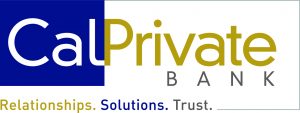Learn To Interview Effectively and You’ll Hire Better Team Members!
Becoming an effective interviewer is a learned skill. It is a systematic, step-by-step process that can help decision makers weed out those prospective employees who may appear fit for the job at first glance – but really aren’t. Classes are available that can help train a leader around interviewing best practices, behavioral questioning, and resume analysis. Additionally, peers in your industry who have demonstrated a track record of making good hiring decisions can provide guidance and feedback about interviewing potential candidates.
Ensure Your New Hire Fits in With the Company Culture
Every company has a culture. The culture is the collective philosophies, behaviors, mandates, best practices, and goals that have been established by senior leadership within the organization. While a prospective employee may have a stellar resume and significant experience in your field, it is vital that they will be able to adapt and flourish within the company culture that permeates your business. If they don’t seem a good fit, no matter how solid their resume looks, pass on them.
Behavioral Interviewing Is Key to Making Sound Choices
Behavioral interviewing focuses on asking applicants about behaviors, experiences, and past activities that may correlate to the roles and responsibilities of the job they are applying for. Most authorities on hiring believe that past performance is a significant predictor of future success. With this in mind, questions like “tell me about yourself” or “what is your biggest strength” may be only somewhat impactful. Asking an applicant to “describe a time when you were challenged at work and came up short” may provide a deeper dive into the applicant’s work ethic, ability to overcome obstacles, and aptitude for crisis management.
Questions Around Motivation and Empowerment
When interviewing a potential new employee, it is common to base a hiring decision on the strength of their resume and the skillset that the applicant already possesses. Two often-overlooked factors are motivation and empowerment. Though these attributes are only ever discovered when an interviewer uses behavioral interviewing methods, motivation and empowerment levels can help indicate the potential of a new hire.
Applicants who directly spell out the factors that motivate during an interview are more likely to be open about asking for these motivating elements that are available on the job. If an interviewee mentions that receiving two paid days off for a successful project completion was highly motivating, it may tell more about the applicant than someone who says they are motivated by money. Employees who can open up and let leadership know what they value are more likely to become valued employees down the road.
Effective Interviewing is Crucial to Building a High Performance Team
Interviewing is a science of knowing which critical questions to ask and how to interpret the responses. One question should flow into the next, allowing the applicant to paint a picture of their skills, experiences, and qualifications. As an interviewer, it is critical to ask the right questions to ensure you’re in a position to hire that next high-performance team member.


